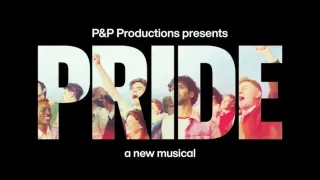
Jan 5
Hudson Williams' Pre-Fame Short Film 'Hold Your Back' Spotlights Raw Gay Breakup Drama
READ TIME: 3 MIN.
Hudson Williams, who portrays Shane Hollander in "Heated Rivalry," first gained notice through small television roles in series such as "Allegiance" and "Tracker." Before his breakout, Williams balanced waiting tables at The Old Spaghetti Factory in Metro Vancouver's New Westminster location with writing, directing, and producing short films. This proactive approach underscores his dedication to independent filmmaking within the LGBTQ+ community, where creators often produce personal stories outside mainstream channels.
One such project, "Hold Your Back," filmed in 2024, has recently resurfaced, drawing renewed interest as Williams' star rises. Written and directed by Zack Fonzovs, who also co-stars alongside Williams, the five-minute short immerses viewers in the volatile dynamics of a gay couple on the verge of separation, complicated by the presence of a baby. The narrative lands in medias res, capturing the aftermath of an emotional explosion that escalates into further conflict, without revealing full backstory or resolution.
Both Williams and Fonzovs deliver compelling performances that convey the passion and pain of the couple's unraveling relationship. The film includes scenes of domestic violence, prompting a content warning for sensitive audiences. Fonzovs created "Hold Your Back" specifically for the 2024 Shits N Giggles Film Festival, crediting Williams as the driving force behind its realization. "I had an idea about two men going through a violent yet passionate breakup, and he filled me with enough passion and help to go through with its creation," Fonzovs stated. "So with his newfound and well deserved recognition, I figured why not give the world more of the brilliant Hudson."
Originally confined to the festival circuit, the film lingered on Fonzovs' hard drive until its public release this week. An enterprising Wikipedia editor prematurely listed it as a 2026 production on Williams' page, reflecting early buzz around his filmography. This development aligns with broader trends in LGBTQ+ indie cinema, where short films provide platforms for authentic explorations of queer relationships, often tackling themes like breakups, intimacy, and familial pressures that larger studios may sideline.
Viewer feedback on the release has been polarized yet engaged, emphasizing the film's raw emotional pull. One commenter noted, "thanks i didn’t wanna start the year happy anyway," capturing its heavy tone. Another shared, "Came for Hudson, stayed for the heartbreak. I see the vision," praising its artistic merit. A standout response celebrated Williams' influence: "i love how hudson's work is introducing people to this whole other world of film outside of the mainstream. all these creative, unique short films are proof that anyone can do this and you don't have to wait for a big studio... to accept you in order make the art you wanna make, you can just go out there and do it yourself."
These reactions highlight how Williams' early work resonates with LGBTQ+ audiences seeking representation in narratives that reflect the complexities of gay relationships, including conflict and vulnerability. In an era where queer stories gain visibility through streaming and festivals, shorts like Hold Your Back demonstrate the power of grassroots production. Fonzovs and Williams' collaboration exemplifies inclusive storytelling by centering gay male experiences without sensationalism, fostering empathy for the multifaceted lives of LGBTQ+ individuals.
Complementing the drama of "Hold Your Back," Williams also featured in the lighter short Dogging, produced shortly before his "Heated Rivalry" casting. In this comedic piece, directed, written, and produced by Williams and Mark Masterton, Fonzovs plays a Swedish journalist probing the subculture of dogging, while Williams embodies Rex—a human hired to act as a dog, complete with reluctance for bath time. Audience amusement peaked with comments like, "goddamn Hudson you are HOT dog! lol these skits are way too funny, I am dying. you guys are crazy and I love it."
This range—from heartbreak to humor—illustrates Williams' versatility and commitment to diverse queer narratives. As Heated Rivalry approaches, these shorts not only trace his journey but also affirm the vibrancy of LGBTQ+ independent filmmakers pushing boundaries. For queer creators and viewers, Williams' path from Vancouver eateries to silver screen spotlights validates the indie ethos: passion precedes opportunity.






